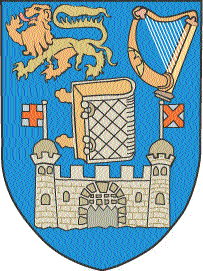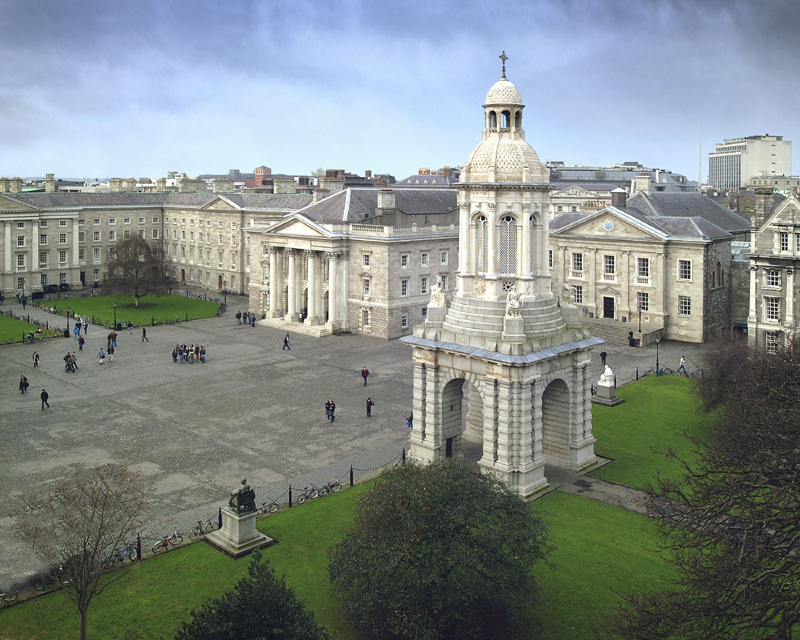
Department of Political Science, Trinity College Dublin
Michael Gallagher

 |
Department of Political Science, Trinity College Dublin Michael Gallagher |
 |
Betting and elections / betting and politics
web site
The development of betting markets around political events in recent years (though the history of such markets goes back to the nineteenth century) has generated academic research into the question of whether betting markets are more reliable guides to future outcomes than opinion polls or other prediction aids.
This page does NOT purport to give anyone advice as to how to make money by betting on elections. Rather, it is about the possibility of using the odds offered by bookmakers, or by prediction markets, rather than (or as well as) the findings of opinion polls taken during an election campaign, as predictors of election outcomes. There is a small but lively literature in this area, generated by researchers such as Robert Erikson, Andrew Leigh, Paul Rhode, Koleman Strumpf, Leighton Vaughan Williams (the 'Betfair prof'), Christopher Wlezien and Justin Wolfers. The Iowa Electronic Markets have run a market on US presidential elections since 1988, and claim a smaller margin of error in their predictions of candidates' votes than opinion polls have displayed. Political betting markets with an academic or information-gathering rationale, and straightforward commercial bookmakers offering odds about future political developments, have operated in a number of countries.
The record of the betting markets in predicting the outcome of Ireland's 2007 election is outlined, and compared with the findings of opinion polls and the predictions of pundits, in the chapter 'The election as horse race: betting and the election' in Michael Gallagher and Michael Marsh (eds), How Ireland Voted 2007 (Basingstoke: Palgrave Macmillan, 2008), pp. 148-166. A few sample pages can be downloaded here (HowIrlVoted07Ch9.pdf, 1.3Mb) but to read the entire chapter it's necessary to obtain the book. Subsequent books in the How Ireland Voted series (2011, 2016, 2020) also contain some discussion of how useful the betting markets proved as a guide to the election and government-formation outcomes.
The odds offered in betting markets can also be used to assess the IDENTIFIABILITY of government options. Identifiability is a concept introduced by Kaare Strom and extensively used by G Bingham Powell. It refers to the ease with which voters can identify the possible alternative government options. In a two-party system it is high, obviously (voters know they have a choice between government by party A or government by party B), while in multi-party systems it varies. Sometimes, two opposing alliances of parties declare themselves prior to the election and voters know that one or the other will form the government; on other occasions, though, there may be no such alliances and neither the voters nor anyone else knows which parties any particular party may go into government with. It may be that there are clear declared alternatives, but uncertainty as to what will happen if neither alliance wins a majority; or there may be one clear option but no clarity as to what the alternatives are. Identifiability is generally seen as a virtue since when it is high this means that voters are, in effect, choosing their government, whereas when it is low voters are not presented with clear alternatives; in those circumstances, they cannot be certain of the effect of their vote, as they may fear that if, for example, they vote for party E in order to get party A out of government, this might ultimately assist party E in putting together a post-election coalition deal with party A.
It is useful analytically to have some idea of how identifiable the options were to voters at any given election when they went to cast their votes. However, hard data on this does not exist, and it is often necessary to rely on analysts' post-election accounts of how voters probably saw the options on election day. It is suggested on page 155 of the chapter cited above (see sample pages) that, where they exist, the odds offered by bookmakers on 'next government' can be used to generate such data, though we must bear in mind that the fact that a betting market sees probabilities in a particular way does not necessarily mean that the voters see things the same way. In the case of the election in Ireland in 2007, according to the betting markets, it is clear that identifiability was low and that voters for a number of parties may well have been uncertain as to the precise effect of their vote and of which other parties their favoured party might go into government with. By starting with the betting market odds we can, as explained in the above-cited chapter, convert these into a set of probabilities applying to each possible government. An 'effective number of options', based on the 'effective number of parties' measure of Markku Laakso and Rein Taagepera, can be calculated. In the case of Ireland's 2007 election the 'effective number of options' on election day was 7.24, indicating very low identifiability. Tracking the odds on betting markets over time provides an insight into changing perceptions of the likely election outcome.
In addition, if the betting markets offer odds about the election prospects of individual candidates (in Ireland in 2007 it was possible to place a bet on any of the 470 candidates) this provides useful, if imperfect, information about the perceived chances of candidates. This information is useful if, for example, we want an independent measure of candidates' perceived (or self-perceived) election prospects, and is a major improvement on the standard alternative, which is to infer perceived pre-election prospects from actual election performance, an approach that raises a number of obvious methodological difficulties. The chapter cited above assesses the record of the betting markets in Ireland in 2007.

If you have any questions, contact mgllgher (add @tcd.ie)
| Go to TCD home | Political Science home | MG home |
Last updated 16 December, 2024 10:23 AM